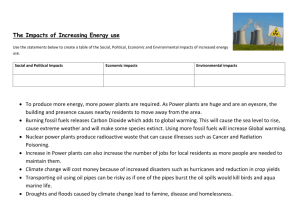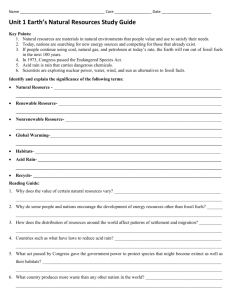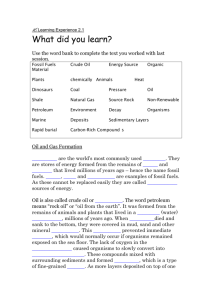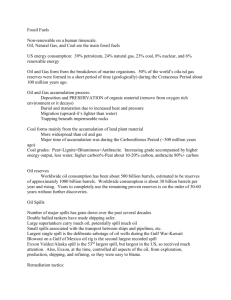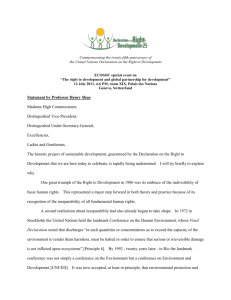5.4 Energy and Fossil Fuels
advertisement
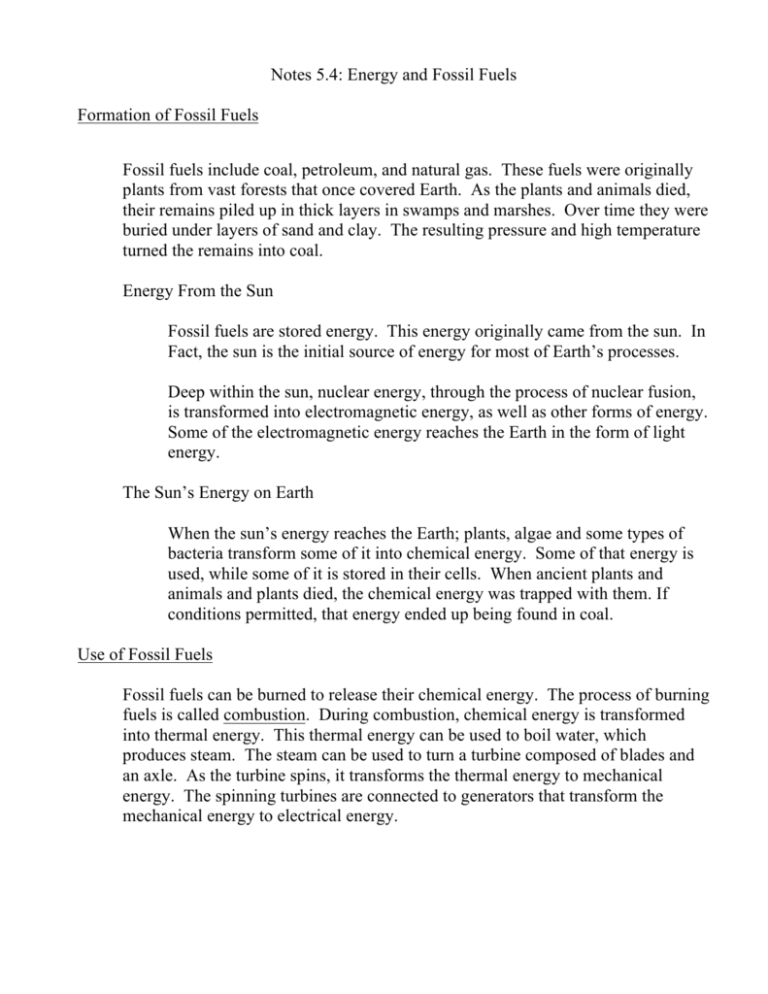
Notes 5.4: Energy and Fossil Fuels Formation of Fossil Fuels Fossil fuels include coal, petroleum, and natural gas. These fuels were originally plants from vast forests that once covered Earth. As the plants and animals died, their remains piled up in thick layers in swamps and marshes. Over time they were buried under layers of sand and clay. The resulting pressure and high temperature turned the remains into coal. Energy From the Sun Fossil fuels are stored energy. This energy originally came from the sun. In Fact, the sun is the initial source of energy for most of Earth’s processes. Deep within the sun, nuclear energy, through the process of nuclear fusion, is transformed into electromagnetic energy, as well as other forms of energy. Some of the electromagnetic energy reaches the Earth in the form of light energy. The Sun’s Energy on Earth When the sun’s energy reaches the Earth; plants, algae and some types of bacteria transform some of it into chemical energy. Some of that energy is used, while some of it is stored in their cells. When ancient plants and animals and plants died, the chemical energy was trapped with them. If conditions permitted, that energy ended up being found in coal. Use of Fossil Fuels Fossil fuels can be burned to release their chemical energy. The process of burning fuels is called combustion. During combustion, chemical energy is transformed into thermal energy. This thermal energy can be used to boil water, which produces steam. The steam can be used to turn a turbine composed of blades and an axle. As the turbine spins, it transforms the thermal energy to mechanical energy. The spinning turbines are connected to generators that transform the mechanical energy to electrical energy.


